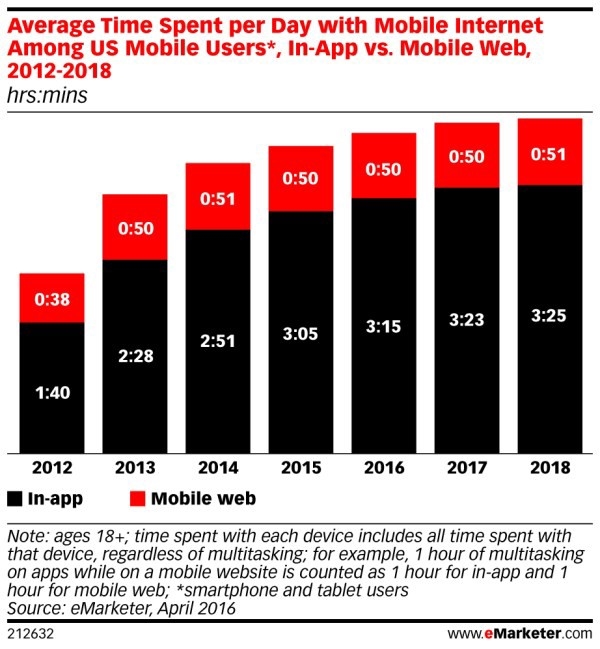— January 30, 2019
Despite all of the technological advancements, apps and productivity tips, it seems that we have less time every day and that we’re in constant hurry. On the other hand, data says otherwise, since people in developed countries have actually gained more free time and work 12 hours less today than they did 40 years ago. As it turns out, we seem to have less time with every year, and we have only ourselves and our perception of time to blame.
Here are some proven ways to regain control of your time and stop rushing through your day.
Stop multitasking
In the past couple of decades, it became imperative to do as much as possible in a short time frame. When we hear the word multitasking, we immediately conjure an image of a busy mom preparing her kids for school, getting ready for work, taking calls and making breakfast at the same time.
The term itself comes from IT, and it means doing several tasks independently at the same time. However, is it really possible to do more things simultaneously and be successful at each of them?
While there are quite a few proponents of multitasking, it turns out that while doing it, you’re not actually simultaneously doing several things. In fact, you’re just rapidly switching from one task to another. For example, you may think that you’re reading emails, checking up on your Trello task list and browsing your social media at the same time and multitasking, but in reality, you’re just quickly switching from one task to another.
In order to really slow down and stop rushing, take things one at a time. Instead of doing several tasks at once, focus on one task only. Not only will you have more time, but you will also be able to do tasks better individually than you would if you were doing them all at once.
Spend less time on the phone
Without thinking, what’s the number one activity that you waste most of your time on? For many of us, it’s our phones. In fact, the average adult spends about 2 hours and 30 minutes on their phone every day, most of which goes to apps. Doesn’t sound that bad, until it adds up to 73.8 hours every month – almost two full work weeks.
Of course, the figure varies across age groups and occupations, with younger generations spending up to 4 hours on their phones every day. What’s alarming is that since 2012, the use of phones (both in apps and online) has steadily been increasing.

While cutting down on phone use won’t make you stop rushing through life and hurry less, it can significantly help you out. By spending less time on your phone apps, you will have more time to do things that truly matter.
There’s an additional benefit of putting your phone down – less unnecessary communication. Humans are creatures of habit, and if everyone gets used to you replying to emails within 2 minutes from receiving them, they will expect that kind of availability from you in the future. Have some time for yourself, when you’re not replying to texts, emails or calls and you’ll notice communication decreasing on all fronts.
Obey the speed limits
Here’s something that may sound obvious. To stop rushing, you literally need to stop hurrying and not drive faster than the speed limit. The amount of time you can save will be minimal and you will endanger yourself and everybody else in traffic around you.
Often times, we’re speeding because we didn’t have enough time to prepare. Instead of driving fast out of habit, take an additional 10-20 minutes to prepare yourself every time you need to commute so that you have more time to get things done – you’ll be able to drive much more calmly and abide by the speed limits.
If you have the possibility, consider commuting by public transport. Not only will you not have to worry about driving, but you will also be able to do some more tasks while commuting, such as reading a good book, going through your emails, listening to a podcast or whatever else you don’t have time for later in the day.
Wake up early
One of the best ways to have more time is to steal it from yourself, by waking up earlier so you can go about your chores before your day even starts. You’ve probably heard stories of entrepreneurs kicking their days off at 4AM and being able to tackle countless tasks during the day.
The reason why it works is because early in the morning, you won’t be bothered by emails, texts, calls or meetings. It’s the perfect time to devote to yourself and the tasks that otherwise get forgotten later on during the day.
Easier said than done for some people – not everyone is a morning person. Waking up early is a habit, and it needs to be accompanied with going to bed early. Instead of switching your alarm clock from 7 to 4AM at once, gradually wake up (and go to bed) earlier every day, 15 minutes at a time. You’ll ease into the habit and it won’t be as difficult as doing it cold turkey.
Prioritize tasks at the beginning of the day
Let’s face it, getting on top of your Facebook feed is not as important as handling all of your work emails. Not all tasks are equally difficult or important and you shouldn’t treat them as such. As you prepare for the day ahead of you, don’t just put together a to-do list. Besides listing your tasks, rank them according to importance – pick 3-5 things that absolutely need to be done by the end of the day.
This way, you’ll have more time as you know that there are tasks that simply aren’t a priority and the world won’t stop if they’re not finished the very same day.
Learn how to say no
Arguably one of the most difficult things to do, saying no is a necessity to gain back some of your time and stop hurrying. If you accept an obligation before making sure that you actually have enough time to devote to it, you’ll overburden yourself and be left without times to complete the new and old tasks.
While this can happen to everyone, freelancers are especially prone to taking on more work than they can handle. Without a solid 9-5 (or whatever your schedule is) structure, you can work different times every day. It can happen that you take on new obligations without knowing if you can complete the ones you already have on your plate.
Before accepting any new work or obligations, first make sure you can manage to do the ones already on your to-do list. Otherwise, you’ll be left with a schedule that’s simply unmanageable and you’ll have no time for yourself.
Track your time
One of the best ways to have more time is to see where your time is actually going. In the past couple of years, there have been countless apps developed for time tracking, whether it’s for work or personal use. Besides allowing employers to keep tabs on their employees’ time, it’s a great way to see where your time is actually going.
By tracking your time for all of your tasks, you’ll be able to see where you’re actually losing time and what tasks make up the most of your day. For example, you can find out that a large part of your day is spent on reading and answering to emails. Whichever the case, you will get insights to better use your time at work and free time and stop hurrying.
Conclusion
Even though it may seem like we have less time than ever, it’s only a matter of our habits. With a few tweaks here and there, we can steal time from ourselves and not have to hurry any more. So, what would you do with an extra hour you gain every day? Let us know in the comments!
Business & Finance Articles on Business 2 Community
(117)
Report Post







